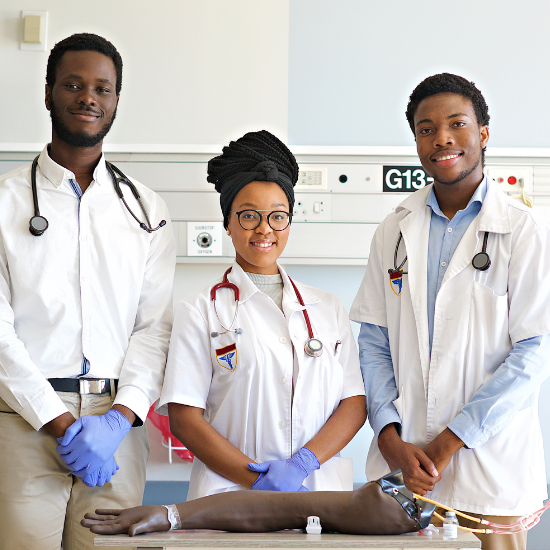Some Known Factual Statements About Northeast Medical Institute - New Haven Campus Phlebotomy Course & Cna Class
Some Known Factual Statements About Northeast Medical Institute - New Haven Campus Phlebotomy Course & Cna Class
Blog Article
Northeast Medical Institute - New Haven Campus Phlebotomy Course & Cna Class for Beginners
Table of Contents7 Easy Facts About Northeast Medical Institute - New Haven Campus Phlebotomy Course & Cna Class ShownThe 10-Minute Rule for Northeast Medical Institute - New Haven Campus Phlebotomy Course & Cna ClassThe Northeast Medical Institute - New Haven Campus Phlebotomy Course & Cna Class IdeasThings about Northeast Medical Institute - New Haven Campus Phlebotomy Course & Cna ClassThe Best Guide To Northeast Medical Institute - New Haven Campus Phlebotomy Course & Cna ClassThe Definitive Guide for Northeast Medical Institute - New Haven Campus Phlebotomy Course & Cna Class
The usage of such tools ought to be accompanied by various other infection prevention and control methods, and training in their usage.For setups with reduced sources, price is a motoring factor in procurement of safety-engineered tools. Where safety-engineered devices are not offered, skilled use of a needle and syringe is appropriate.
One of the essential pens of top quality of treatment in phlebotomy is the participation and cooperation of the client; this is mutually beneficial to both the health worker and the patient. Clear details either composed or spoken should be readily available per client who undergoes phlebotomy. Annex F offers example text for explaining the blood-sampling procedure to an individual. In the blood-sampling room for an outpatient division or facility, offer a comfortable reclining couch with an arm remainder.
The Best Strategy To Use For Northeast Medical Institute - New Haven Campus Phlebotomy Course & Cna Class
Make certain that the indicators for blood tasting are plainly defined, either in a composed procedure or in recorded instructions (e.g. in a lab kind). Accumulate all the devices required for the treatment and place it within secure and simple reach on a tray or cart, ensuring that all the products are plainly noticeable.
Present yourself to the individual, and ask the individual to mention their complete name. Examine that the research laboratory kind matches the client's identification (i.e. match the person's details with the lab kind, to ensure precise identification).
Make the patient comfortable in a supine position (preferably). Area a clean paper or towel under the client's arm. Talk about the test to be performed (see Annex F) and obtain spoken approval. The individual has a right to reject a test at any moment prior to the blood sampling, so it is essential to guarantee that the client has recognized the treatment.
All About Northeast Medical Institute - New Haven Campus Phlebotomy Course & Cna Class
Prolong the patient's arm and examine the antecubital fossa or lower arm. Situate a vein of a good size that shows up, straight and clear. The representation in Area 2.3, reveals common settings of the vessels, however several variants are possible. The average cubital capillary exists in between muscular tissues and is usually the most simple to check here puncture.
DO NOT put the needle where veins are diverting, because this enhances the opportunity of a haematoma. Situating the capillary will help in figuring out the proper dimension of needle.
Samplings from central lines bring a risk of contamination or incorrect lab examination results. It is appropriate, yet not suitable, to attract blood samplings when first introducing an in-dwelling venous tool, prior to linking the cannula to the intravenous fluids.
All about Northeast Medical Institute - New Haven Campus Phlebotomy Course & Cna Class
Failure to enable enough call time raises the risk of contamination. DO NOT touch the cleaned up site; in particular, DO NOT place a finger over the vein to guide the shaft of the exposed needle.
Ask the client to develop a fist so the veins are more prominent. Enter the vein swiftly at a 30 degree angle or much less, and remain to introduce the needle along the blood vessel at the easiest angle of entry - Phlebotomy Classes. As soon as sufficient blood has actually been accumulated, release the tourniquet BEFORE taking out the needle
Facts About Northeast Medical Institute - New Haven Campus Phlebotomy Course & Cna Class Uncovered
Withdraw the needle delicately and apply mild stress to the site with a tidy gauze or dry cotton-wool sphere. Ask the patient to hold the gauze or cotton wool in position, with the arm extended and elevated. Ask the patient NOT to bend the arm, due to the fact that doing so triggers a haematoma.

Things about Northeast Medical Institute - New Haven Campus Phlebotomy Course & Cna Class
Where possible, keep the tubes in a shelf and move the rack in the direction of you - https://canvas.instructure.com/eportfolios/2993066/Home/Empower_Your_Future_with_CNA_Courses_and_Phlebotomy_Training. If the sample tube does not have a rubber stopper, infuse exceptionally gradually into the tube as minimizing the stress and speed utilized to transfer the sampling decreases the risk of haemolysis.

Report this page